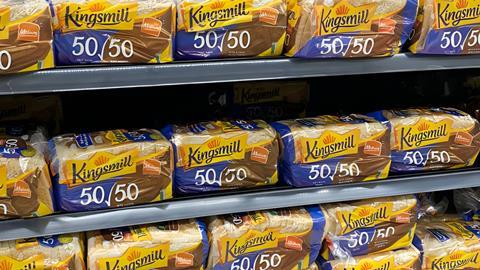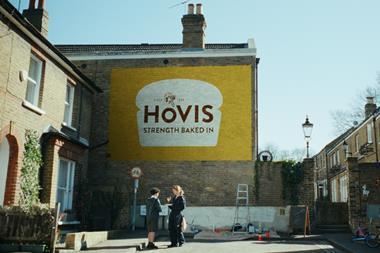With Kingsmill now a distant third in the plant bread market, Associated British Foods has finally thrown in the towel, confirming talks this week with Hovis-owned Endless over a potential merger.
It’s a move that could and should have happened years ago. In a market combining declining sales with overcapacity, ABF has failed to make its eye-watering investments pay, either in manufacturing capacity or successive relaunches of its three brands – Kingsmill, Allinson’s or Burgen. Conversely, Hovis – while a stronger brand than Kingsmill – is struggling through underinvestment. Meanwhile, Warburtons has been eating their lunch, outmanoeuvring them on every level: diversification and NPD, advertising and branding, distribution and manufacturing, not to mention partnerships with own-label bakeries such as Fine Lady Bakeries and Jacksons.
So a merger makes sense. An opportunity to consolidate supply and realise some much-needed economies of scale in manufacturing and distribution.
A sentimental journey
Yet it’s a play ABF has refused to countenance. Until now. That’s surely down to pride as much as anything. And sentimentality. The Weston dynasty was built on its initial fortunes as a baker, with founder Garfield Weston starting out on the acquisition trail in 1935 and consolidating the market to turn Allied Bakeries into an industry giant.
It was the springboard for expansion and diversification. But while, as the renamed Associated British Foods, it’s not been afraid to sell off strategic assets too – most notably its Fine Foods grocery retail business – it’s held on to Allied Bakeries through thick and, increasingly, thin.
So why sell now? After all, ABF has not been making any dough for years.
Trouble at mill
First there’s the 22% decline in ABF’s share price: with cash cow Primark running out of steam, and the sugar business now also losing money, Allied Bakeries is a distraction and an indulgence.
Second, the new government’s growth agenda has altered the regulatory mood music. Until now the assumption was that a merger was impossible. As a City source told me: ”Three big players going down to two. The CMA would hate that. It goes against everything they’ve stood for, reducing competition.”
But with growth as its watchword, under ex-Amazon boss Doug Gurr, a more placatory approach is being taken, as witnessed by the speedy approval of the Greencore-Bakkavor merger.
Saying that, there are hurdles: notably Northern Ireland (where Warburtons has a tiny share).
Failing firm
A possible alternative option is a ‘failing firm’ justification. Allied Bakeries has been losing money for years. And as the City source says: “The only time when the CMA has allowed reduced competition has been in the milk market, on the basis of the failing firm argument.” But it’s a risk, he adds.
“ABF would have to be prepared to put it into administration if the deal doesn’t go through. And for a plc to put a subsidiary in administration is unusual to say the least.”
What ABF would be able to point to however, is Kingsmill’s diminished importance in the market. Its sales have declined alarmingly. And they’ve fallen again in the past year after the Tesco delist.
Kingsmill and Hovis’s combined share is also lower than reports suggest. It’s not 41%, as estimated by Sky News sources; it’s 35% of the branded wrapped slice bread market (vs 45% for Warburtons) according to The Grocer Top Products Survey [NIQ 52 w/e 7 September 2024] – and that includes data for Allinson’s.
And it’s a meaningless comparison anyway. An assessment would need to include other wrapped morning goods and specialist breads, of which it has a combined share of under 24% (vs 43% for Warburtons).
And then there’s own label. Factor in sales from own brand and the combined share of Kingsmill and Hovis reduces still further to just 14% (vs 24% for Warburtons).
So a merger is not such a stretch as it has been in the past.
Endless problems
The urgency is also doubtless enhanced by the situation on the Endless side, for whom the 2025 exit it was hoping for looks all but impossible without a transformational deal of some description. Last year it was reported to be eyeing up Morrisons bakery Rathbones but this is a lot more of an attractive proposition. If done right.
Yet there is no guarantee combining forces – a Best of Both approach, if you like – will result in success.
It’s not just the level of investment that would still be required. It’s about the quality of its brands and products. It’s about investing in growth categories like sourdough (which we’ve looked at in a special report), brioche, crumpets and pitta – opportunities Allied and Hovis have largely missed.
There will also be huge questions to resolve over the HQ, the management team, the strategy, the price and the potential losses and/or further investments that might need to be made.
In short, there’s no quick fix. On the other hand, doing nothing is not an option.




















No comments yet